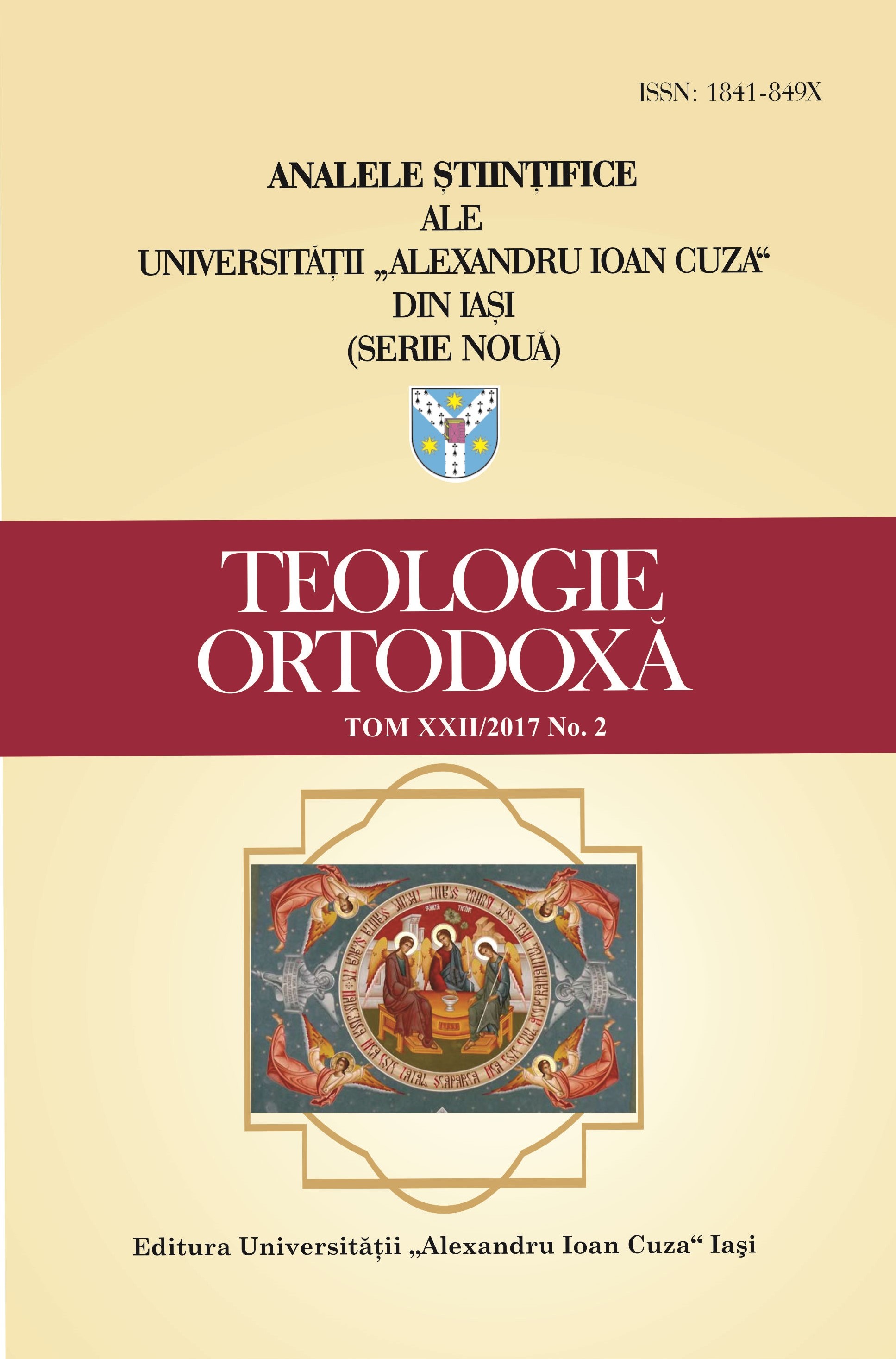Health – Divine Blessing; Illness and Suffering – Academy of Virtues
Health – Divine Blessing; Illness and Suffering – Academy of Virtues
Author(s): Ioan Cristinel TeşuSubject(s): Theology and Religion
Published by: Editura Universităţii »Alexandru Ioan Cuza« din Iaşi
Keywords: Spirituality; Philokalia; illness; sufferings; martyrdom; patience; prayer
Summary/Abstract: The Holy Fathers of the Orthodox Spirituality unanimously consider that pain, suffering, illness and death (as well as their entire range of forms and manifestations) are the consequences of the primal or ancestral sin and of the man’s free will that God endowed him from creation. However man misused it. Therefore they are the effects of the initial unfortunate choice made by him.Sufferings and infirmities, pains and human diseases, they all culminate in death and were totally unknown to the primordial man before the fall in the ancestral sin. At that time he was in a state of perfection or relative perfection, having the capacity to improve it up to deification. By rationally using the faculties he received at creation and by exercising the gift of personal liberty with watchfulness and discernment, man would have been acquired the full resemblance to God. Referring to this connection between the ancestral sin and the diseases of the first men’s descendants, the Orthodox theology teaches that their source lays in the original sin. By inheriting the human nature from our proto-parents, we receive all the positive energies capable of helping man to complete himself and to establish himself in the work of virtues, on the one hand. It means restoring it in a state similar to the original one and leading to union with God. At the same time, we inherit the weaknesses, impotence and death that have entered it and united with its being. The spiritual writings, as well as the general human experience show that in the Christian life joys and sorrows, trials and sufferings are intertwined. Thus, there is no man who, from the dawn of his life until his end, had only some of them: be it joy or trouble. Moreover, the good Christian noticed that joys which are not lived in a beautiful and pure way will turn into occasions of falling, humiliation and suffering sooner or later. Likewise, the trials that were spiritually confronted bring relief and comfort, holy joy and salvation to the soul in the end. From a Christian perspective, the attitude towards suffering supposes to assume it in a saintly way and to do the “philosophy of disease” as part of the “philosophy of life”. That is to discover the benefits these “involuntary sufferings” can bring to our spiritual life.The plain and clear teaching of the Eastern Fathers consists of not wishing, seeking or asking for such painful experiences, because we are never fully convinced of our ability to receive and assume them. The physical and spiritual pain-bearing threshold is so different from one person to another and depends not only on his constitution, but also on his moral creed and philosophy of life. However, the same Orthodox Spirituality recommends that when disease “visits” us, we should receive and bear it with nobility of soul and moral dignity.
Journal: Analele Ştiinţifice ale Universităţii »Alexandru Ioan Cuza« din Iaşi. Teologie Ortodoxă
- Issue Year: 22/2017
- Issue No: 2
- Page Range: 76-83
- Page Count: 8
- Language: English

